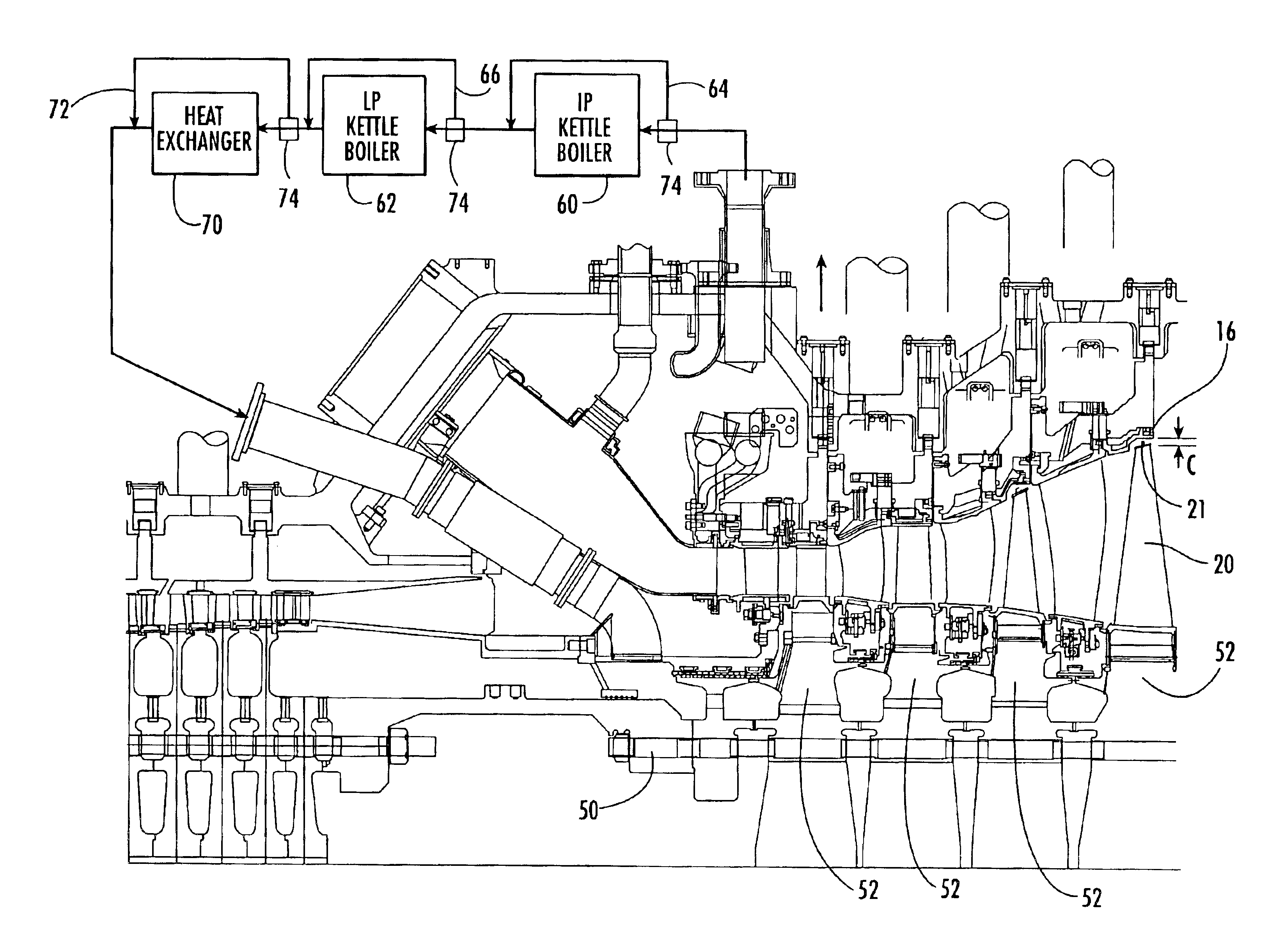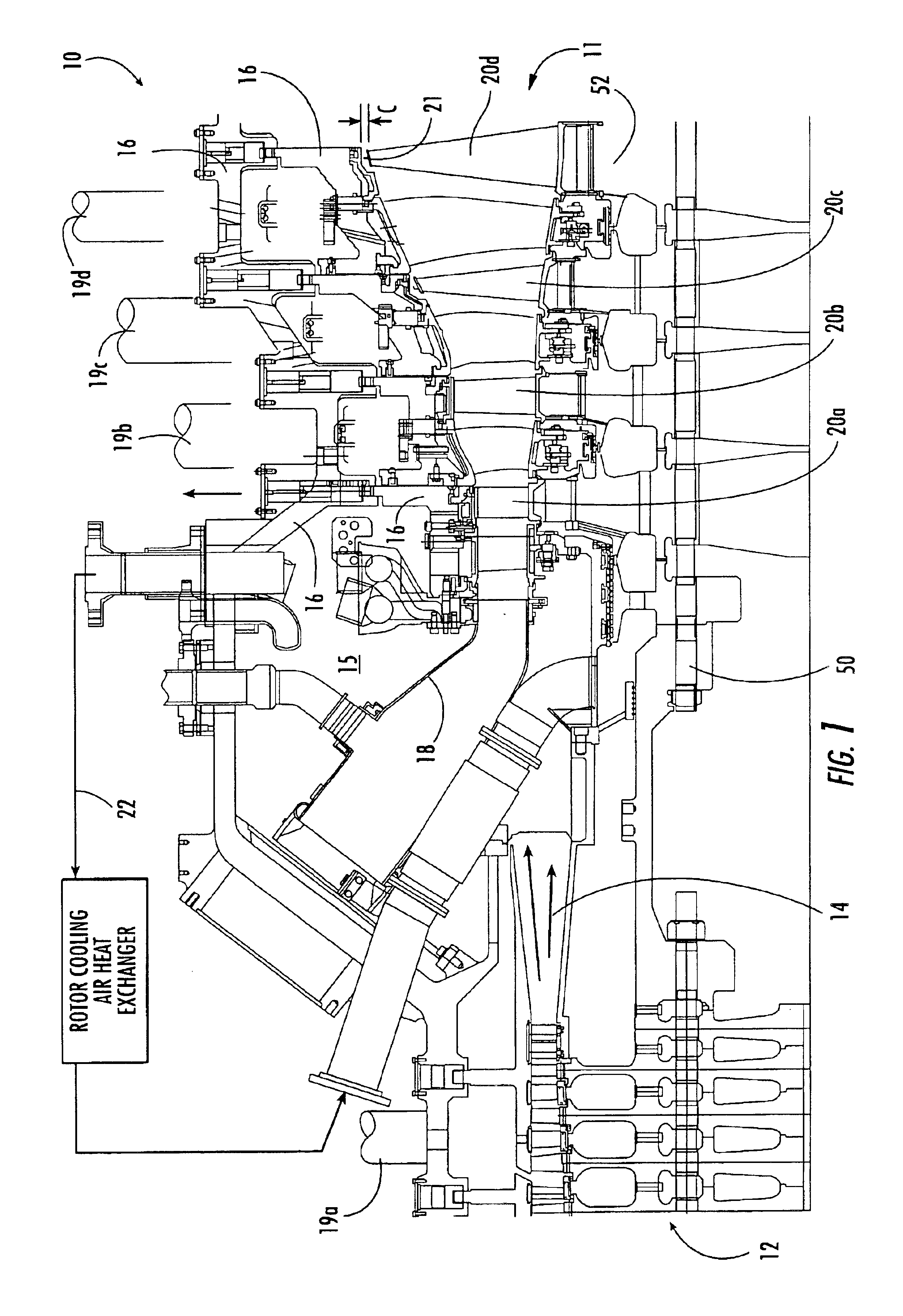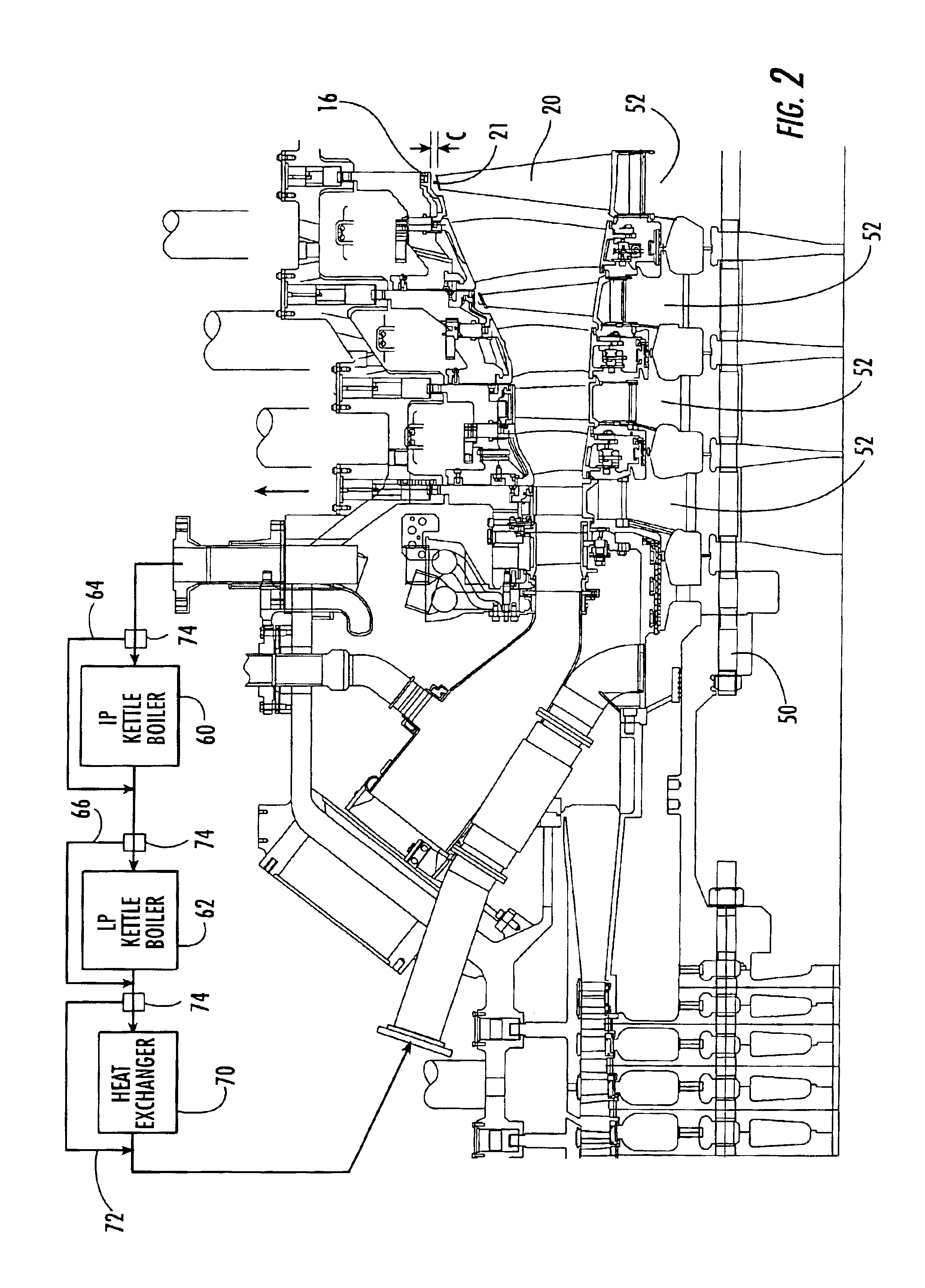Part load blade tip clearance control
a technology of blade tip clearance and part load, which is applied in the direction of machines/engines, turbine/propulsion fuel heating, mechanical equipment, etc., can solve the problems of limiting the load reduction which can be achieved, and the production of high levels of carbon monoxide (co) during combustion
- Summary
- Abstract
- Description
- Claims
- Application Information
AI Technical Summary
Benefits of technology
Problems solved by technology
Method used
Image
Examples
Embodiment Construction
[0018]Aspects of the present invention address a blade tip clearance problem that can occur when the turbine inlet temperature is maintained at a high level during part load operation of a gas turbine, which may be done, for example, to reduce CO emissions. To that end, aspects of the present invention relate to a method for ensuring a minimum blade tip clearance under such conditions. Other aspects of the present invention relate to a turbine engine configuration for maintaining a blade tip clearance during part load operation.
[0019]Embodiments according to aspects of the invention are shown in FIGS. 2-4, but the present invention is not limited to the illustrated structure or application. Further, the following detailed description is intended only as exemplary.
[0020]In some turbine engine designs, compressor exit air 14 from the combustor shell 15 can be used to cool at least the turbine rotor 50, discs 52, and blades 20. In such instances, the compressor exit air is routed out o...
PUM
 Login to View More
Login to View More Abstract
Description
Claims
Application Information
 Login to View More
Login to View More - R&D
- Intellectual Property
- Life Sciences
- Materials
- Tech Scout
- Unparalleled Data Quality
- Higher Quality Content
- 60% Fewer Hallucinations
Browse by: Latest US Patents, China's latest patents, Technical Efficacy Thesaurus, Application Domain, Technology Topic, Popular Technical Reports.
© 2025 PatSnap. All rights reserved.Legal|Privacy policy|Modern Slavery Act Transparency Statement|Sitemap|About US| Contact US: help@patsnap.com



